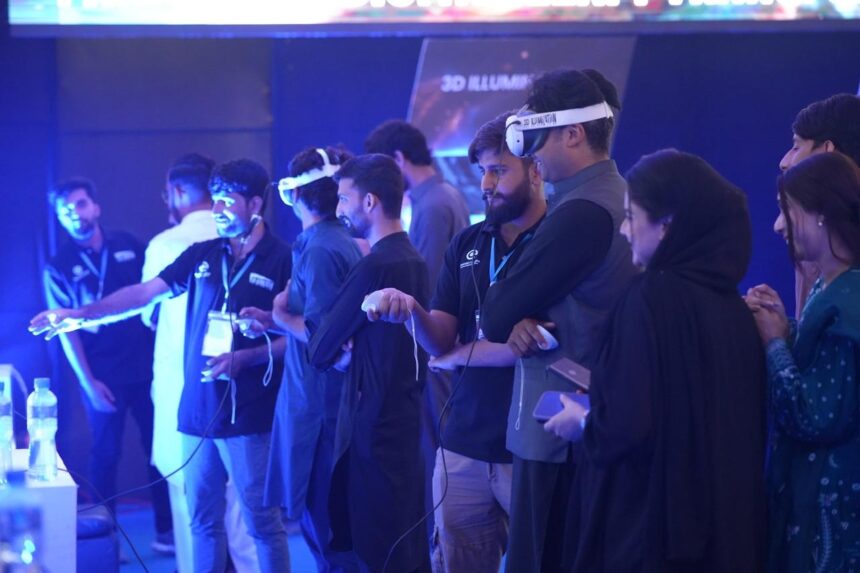**Pakistan’s Higher Education Sector Achieves Major Digital Milestone with “Pakistan Digital Leap” Initiative**
The Higher Education Commission (HEC) of Pakistan has made a significant advancement in the digitization of the country’s higher education sector, unveiling a comprehensive digital infrastructure through its landmark “Pakistan Digital Leap” event. The initiative, managed under the flagship Higher Education Development Program (HEDP) in collaboration with the World Bank, promises to transform the learning environment for millions of students nationwide.
The event was attended by key stakeholders, including university vice chancellors, representatives from the corporate sector, and other prominent figures from Pakistan’s educational landscape. Notably, the event itself made history as HEC Chairman Dr. Mukhtar Ahmad appeared as a holographic avatar, becoming the country’s first-ever hologram host of such a significant gathering.
Central to the event was the showcasing of HEC’s strategic IT initiatives, which are already impacting over six million students across Pakistan. These initiatives encompass Astrolabes datacenters, As-Sadeem cloud computing solutions, Al-Meissa high-performance computing (HPC), Maktab ERP-SLCS, Al-Fihri learning management system (LMS), Jidar network security, and the Smart Classroom project. This suite of technologies equips the higher education sector with modern digital tools to provide world-class education and improve the competitive abilities of Pakistani students globally.
HEC also highlighted its achievements in establishing an extensive digital backbone, which includes 7,000 kilometers of fiber connectivity and over 20,000 Wi-Fi points across 96 higher education institutions (HEIs) in Pakistan. These advancements will improve access to digital resources and foster innovation in teaching and learning.
The successful pilot phase, which involved digitizing 25 HEIs, has demonstrated strong results and generated considerable demand for the full implementation of HEC’s IT initiatives across all public universities nationwide. This progress is seen as a major step towards creating a digitally empowered, knowledge-based society in Pakistan.
During the event, Chairman Dr. Mukhtar Ahmad emphasized the importance of technological support for universities and students. He noted that the introduction of these technologies would enable Pakistani students and institutions to compete with top-ranking universities worldwide while also reducing operational costs for HEIs.
The Higher Education Commission of Pakistan remains committed to its mission of promoting quality higher education and research, with a vision to transform the country into a knowledge-based economy.











